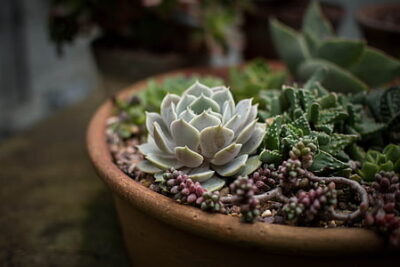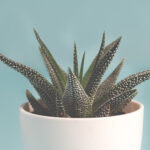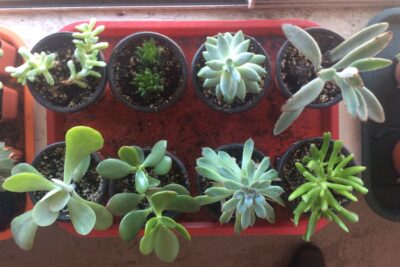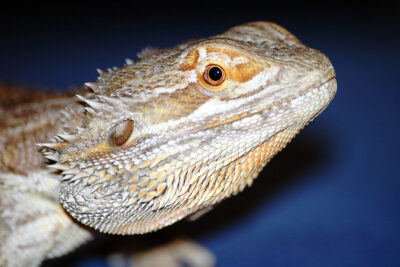
Pet-Friendly Succulents: Exploring Spiked Varieties Safe for Pets

Having plants in our homes not only enhances the aesthetic appeal but also brings a sense of calm and tranquility. However, for pet owners, it's essential to choose plants that are safe for their furry friends. Succulents have gained immense popularity in recent years due to their unique shapes, low maintenance requirements, and ability to thrive in various conditions. But are all succulents safe for pets? We will explore pet-friendly succulents, specifically focusing on spiked varieties that are harmless to our beloved animals.
When it comes to choosing pet-friendly succulents, it's important to consider the potential toxicity of certain plants. Many succulents feature spikes or thorns that can pose a risk to curious pets, causing discomfort or even injury. However, there are numerous succulent varieties that are safe for pets, even those with a penchant for nibbling on plants. We will highlight some of the best pet-friendly succulents that pet owners can confidently incorporate into their homes without worrying about their furry companions. We will discuss the characteristics of these spiked succulents, their care requirements, and provide tips for creating a pet-friendly environment that both humans and pets can enjoy.
- Choose succulents with non-toxic properties for pets
- Opt for succulents with soft spikes or no spikes at all
- Keep succulents out of reach of pets to prevent accidental ingestion
- Research specific succulent varieties to ensure they are safe for pets
- Consult with a veterinarian if unsure about the safety of a particular succulent
- Consider placing a barrier around succulents to prevent pets from accessing them
- Regularly inspect succulents for any signs of damage or chew marks
- Provide pets with alternative plants or toys to distract them from the succulents
- Create a designated pet-friendly area in your home with pet-safe plants
- Educate yourself on the symptoms of plant toxicity in pets
Choose succulents with non-toxic properties for pets
If you are a pet owner and a succulent enthusiast, it is important to be mindful of the plants you bring into your home. While many succulents are safe for pets, there are some varieties that can be toxic if ingested. To ensure the safety of your furry friends, it is essential to choose succulents with non-toxic properties.
Here is a list of spiked succulents that are safe for pets:
- Echeveria: These rosette-shaped succulents are not only beautiful but also safe for pets. They come in a variety of colors and textures, making them a popular choice for many succulent enthusiasts.
- Haworthia: Known for their unique and eye-catching patterns, Haworthias are considered pet-friendly succulents. These small, slow-growing plants are perfect for indoor gardening and are safe for both cats and dogs.
- Gasteria: With their thick, fleshy leaves and striking patterns, Gasterias are not only visually appealing but also safe for pets. These succulents thrive in low-light conditions, making them ideal for indoor environments.
- Sedum: Sedums are a diverse group of succulents that are known for their hardiness and ability to withstand various growing conditions. These pet-friendly succulents come in different shapes and sizes, adding visual interest to any garden or indoor space.
- Crassula: Also known as Jade plants, Crassulas are popular choices for both beginner and experienced succulent lovers. These plants are not only easy to care for but are also safe for pets.
While these succulents are generally considered safe for pets, it is important to remember that individual pets may still have sensitivities or allergies. If you notice any unusual behavior or symptoms in your pet after introducing a new succulent, it is best to consult with a veterinarian.
By choosing pet-friendly succulents, you can create a beautiful and safe environment for both your plants and your furry companions.
 Discover Discounts at The Succulent Depot!
Discover Discounts at The Succulent Depot!Opt for succulents with soft spikes or no spikes at all
When it comes to choosing pet-friendly succulents, it's important to consider the safety of your furry friends. While succulents are generally low-maintenance and easy to care for, some varieties can pose a risk to pets, especially those with sharp spikes or thorns.
To ensure the well-being of your pets, it's best to opt for succulents with soft spikes or no spikes at all. These varieties not only add beauty and greenery to your space but also provide a safe environment for your pets to roam freely without the risk of injury.
Soft-Spiked Succulents
- Echeveria: Echeverias are popular succulents known for their rosette-shaped leaves. They come in a wide range of colors and have soft, pliable spikes that are harmless to pets.
- Haworthia: Haworthias are small succulents that feature fleshy leaves with soft spines. These low-growing plants are not only pet-friendly but also make excellent additions to any indoor succulent collection.
- Sedum: Sedums are versatile succulents that come in various shapes and sizes. Many sedum species have soft, rounded leaves devoid of any thorns or spikes, making them safe for pets to be around.
Thornless Succulents
- Aloe Vera: Aloe vera is a well-known succulent with numerous health benefits. The leaves of this plant are thick and fleshy but lack any spikes or thorns, making it a safe choice for both pets and humans.
- Jade Plant: Jade plants are popular houseplants that are not only aesthetically pleasing but also safe for pets. These succulents have smooth, round leaves that are pet-friendly and can add a touch of elegance to any space.
- Christmas Cactus: Christmas cacti are festive succulents that bloom during the holiday season. These plants have flattened and toothless stems, making them an excellent choice for pet owners looking for safe succulents.
Remember, even though these succulents are considered pet-friendly, it's still essential to monitor your pets' interactions with them. Some pets may have allergies or sensitivities to certain plants, so it's important to observe their behavior and consult a veterinarian if you notice any adverse reactions.
By selecting soft-spiked or thornless succulents, you can create a pet-friendly environment that not only enhances your living space but also ensures the safety and well-being of your beloved pets.
Keep succulents out of reach of pets to prevent accidental ingestion
 Cat-Friendly Succulents: Safe for Claws, Where to Find
Cat-Friendly Succulents: Safe for Claws, Where to FindPets are curious creatures, and they often explore their surroundings by sniffing, licking, and even tasting objects. While succulents are generally low-maintenance and visually appealing, not all varieties are safe for pets. Some succulents can be toxic to dogs, cats, and other animals if ingested.
To ensure the safety of your furry friends, it is important to keep your pet-friendly succulents out of their reach. Place them on high shelves, hanging baskets, or in areas where pets cannot access them. By doing so, you can prevent any accidental ingestion and potential health hazards.
Choosing pet-friendly succulents
When selecting succulents that are safe for pets, it is crucial to do your research. Here are some pet-friendly succulents that you can consider adding to your collection:
- Haworthia: This small succulent with rosette-shaped leaves is safe for pets and comes in various unique patterns and colors.
- Echeveria: Known for their rosette-shaped leaves in vibrant shades of green, purple, and pink, echeverias are non-toxic to pets.
- Sedum: Sedums are versatile succulents that come in different varieties. They are safe for pets and can be a great addition to your indoor or outdoor garden.
- Christmas Cactus: This popular holiday succulent is safe for pets and blooms with beautiful flowers during the festive season.
- Zebra Plant: Zebra plants, also known as Haworthia fasciata, have distinctive white stripes on their dark green leaves. They are safe for pets and make for an eye-catching addition to any succulent collection.
Remember, even though these succulents are considered safe for pets, it is always a good idea to monitor your furry friends and discourage them from chewing or nibbling on any plants.
By keeping your pet-friendly succulents in a safe location and selecting non-toxic varieties, you can enjoy the beauty of these spiky plants without worrying about the well-being of your beloved pets.
Research specific succulent varieties to ensure they are safe for pets
Pets bring so much joy and companionship to our lives, and as pet owners, it's important for us to create a safe environment for them. If you're a succulent enthusiast with furry friends, you may be wondering which succulent varieties are safe to have around your pets. While succulents are generally known for being low-maintenance and pet-friendly, it's still crucial to research specific varieties to ensure they are safe for your beloved animals.
Here, we've compiled a list of spiked succulent varieties that are considered safe for pets:
 Are Succulents Pet Friendly? A Guide for Pet Owners
Are Succulents Pet Friendly? A Guide for Pet Owners1. Haworthia
Haworthias are small, rosette-shaped succulents that are perfect for pet owners. These plants have soft, fleshy leaves that are unlikely to cause harm to your pets. They come in a variety of patterns and textures, adding a touch of elegance to any indoor or outdoor space.
2. Echeveria
Echeverias are popular succulents known for their beautiful rosette formations. These plants have thick, plump leaves that are safe for pets. With their vibrant colors and stunning symmetry, echeverias make a fantastic addition to any succulent collection.
3. Sedum
Sedums, also known as stonecrops, are versatile succulents that are safe for pets. These plants come in a wide range of shapes, sizes, and colors, making them a popular choice among succulent enthusiasts. Sedums are low-maintenance and can thrive in various conditions, making them an excellent choice for both beginners and experienced plant lovers.
4. Kalanchoe
Kalanchoes are hardy succulents with vibrant blooms that are safe for pets. These plants are known for their ability to tolerate low light conditions, making them suitable for indoor environments. With their eye-catching flowers and interesting foliage, kalanchoes can brighten up any space while keeping your pets safe.
Remember, even though these succulent varieties are considered safe for pets, it's always essential to monitor your pets' behavior around plants. Some animals may have allergies or sensitivities that could still cause discomfort. If you notice any adverse reactions in your pets, it's best to consult a veterinarian.
By choosing pet-friendly succulents, you can enjoy the beauty of these unique plants while ensuring the safety and well-being of your furry companions. So go ahead, create a lush succulent oasis that both you and your pets can enjoy!
Consult with a veterinarian if unsure about the safety of a particular succulent
 Delicious Key Lime Pie Recipe: A Taste Bud Delight
Delicious Key Lime Pie Recipe: A Taste Bud DelightWhen it comes to keeping pets safe and happy, it's important to be cautious about the plants we have in our homes. While succulents are known for their low maintenance and beauty, not all varieties are safe for our furry friends. If you're unsure about the safety of a particular succulent, it's always best to consult with a veterinarian.
Consider placing a barrier around succulents to prevent pets from accessing them
When it comes to creating a pet-friendly environment in your home, it's important to consider the plants you have. While succulents are known for their hardiness and low-maintenance nature, not all varieties are safe for pets. Many succulents have small spikes or thorns that can be harmful if ingested or if pets accidentally brush against them.
To ensure the safety of your furry friends, it's a good idea to consider placing a barrier around your succulents. This can be done using a decorative fence, a low wall, or even a clear plastic barrier. By creating a physical barrier, you can prevent pets from accessing the plants and potentially getting hurt.
Additionally, it's important to choose pet-friendly succulents that are safe for dogs and cats. While there are numerous succulent varieties to choose from, some are known to be non-toxic to pets, making them ideal for pet owners.
Here are some pet-friendly succulents to consider:
- Haworthia: This succulent has a rosette-like shape and is safe for pets. It comes in various patterns and colors, making it a popular choice among succulent enthusiasts.
- Christmas Cactus: Also known as Schlumbergera, this succulent blooms during the holiday season, adding a festive touch to your home. It's safe for pets and can be a great addition to your succulent collection.
- Echeveria: Echeveria is a popular succulent with beautiful rosette-shaped leaves. It comes in a wide range of colors and textures, making it a versatile choice for pet-friendly succulent gardens.
- Burro's Tail: Sedum morganianum, commonly known as Burro's Tail, is a trailing succulent with long, cascading stems. It's safe for pets and adds a unique touch to hanging baskets or tall planters.
Remember, even though these succulents are considered pet-friendly, it's always a good idea to keep an eye on your pets and ensure they don't chew on or ingest any plants. If you notice any signs of discomfort or illness in your pets, consult a veterinarian immediately.
Creating a pet-friendly environment doesn't mean you have to sacrifice your love for succulents. By selecting the right varieties and taking necessary precautions, you can enjoy the beauty of these plants while keeping your pets safe and happy.
 Can Bearded Dragons Safely Include Succulents in Their Diet?
Can Bearded Dragons Safely Include Succulents in Their Diet?Regularly inspect succulents for any signs of damage or chew marks
When it comes to keeping pets and plants in harmony, it's important to choose pet-friendly succulents that are safe for your furry friends. While succulents are generally low-maintenance and hardy, some varieties can be toxic to pets if ingested. By opting for spiked varieties, you can ensure the safety of your pets while still enjoying the beauty of these unique plants.
Why choose spiked succulents?
Spiked succulents, also known as thorny or spiky succulents, are a great choice for pet owners. Their unique appearance adds a touch of exoticism to your indoor or outdoor space, while their natural deterrents help keep curious pets at bay. These succulents have sharp thorns or spines that make them less appealing for pets to nibble on, reducing the risk of ingestion.
Top pet-friendly spiked succulents
Here are some popular spiked succulents that are safe for pets:
- Zebra Haworthia (Haworthiopsis attenuata): This striking succulent features rosettes of pointy, dark green leaves with white stripes, resembling a zebra pattern. It is non-toxic to both cats and dogs, making it a safe choice for any pet-friendly household.
- Panda Plant (Kalanchoe tomentosa): With its fuzzy, gray-green leaves adorned with brownish-red spots, the Panda Plant is not only visually appealing but also safe for pets. Its soft spikes are unlikely to cause harm if touched or nibbled on.
- Barrel Cactus (Echinocactus grusonii): This iconic desert plant features a spherical shape covered in golden spines, creating a stunning visual display. While it may look intimidating, the Barrel Cactus is safe for pets as its spines are firmly attached and not easily dislodged.
Remember, it's essential to regularly inspect your succulents for any signs of damage or chew marks. Even though these spiked varieties are considered safe for pets, it's always better to be cautious and ensure the well-being of your furry companions.
Provide pets with alternative plants or toys to distract them from the succulents
If you have pets at home and want to keep your succulents safe from their curious paws or mouths, it's important to provide them with alternative plants or toys to distract them. This will not only protect your precious succulents but also ensure the safety and well-being of your furry friends.
Succulents, with their unique and fascinating shapes, can be quite tempting for pets to explore. However, not all succulents are safe for pets as some varieties may be toxic if ingested. To prevent any accidents or health issues, it's best to create a pet-friendly environment by incorporating plants and toys that are safe and engaging for your pets.
 Explore Hello Succulent Studio's Latest Discounts and Promotions!
Explore Hello Succulent Studio's Latest Discounts and Promotions!Choose pet-friendly plants
When selecting alternative plants for your pets, opt for varieties that are non-toxic and pet-friendly. Some ideal choices include spider plants, Boston ferns, and African violets. These plants not only add greenery to your space but are also safe for your pets to be around.
Spider plants (Chlorophytum comosum) are known for their air-purifying properties and are non-toxic to both cats and dogs. They have long, arching leaves that are visually appealing and can keep your pets entertained. Similarly, Boston ferns (Nephrolepis exaltata) are lush and vibrant, providing a safe alternative for your pets to explore.
African violets (Saintpaulia spp.) are another excellent choice, as they are not only non-toxic but also low-maintenance. Their beautiful and colorful flowers will surely catch your pet's attention, keeping them away from your succulent collection.
Introduce pet-friendly toys
In addition to pet-friendly plants, providing your pets with engaging toys can help divert their attention from your succulents. Toys that are designed specifically for pets, such as interactive puzzle toys or chew toys, can keep them occupied and entertained for hours.
Interactive puzzle toys, such as treat-dispensing toys, require your pet's problem-solving skills to access the treats inside. This mental stimulation can help redirect their focus away from your succulents. Chew toys, on the other hand, provide a safe and appropriate outlet for your pet's natural chewing instincts.
Remember to regularly rotate the toys to maintain your pet's interest and prevent boredom. By providing alternative plants and toys, you create a pet-friendly environment that promotes their well-being while safeguarding your beloved succulent collection.
Create a designated pet-friendly area in your home with pet-safe plants
When it comes to creating a safe and welcoming environment for our furry friends, it's important to consider not only their physical well-being but also their curious nature. If you're a plant lover and a pet parent, you may be wondering how to strike a balance between having greenery in your home and ensuring the safety of your pets.
 Harmony: Cats and Succulents Coexisting Peacefully
Harmony: Cats and Succulents Coexisting PeacefullyOne option to consider is incorporating pet-friendly succulents into your indoor plant collection. These low-maintenance and visually appealing plants can add a touch of nature to your space while being safe for your pets to be around.
Why choose pet-friendly succulents?
Succulents, with their unique and often spikey appearance, are a popular choice among plant enthusiasts. However, not all succulents are safe for pets. Some varieties can be toxic if ingested by cats or dogs, causing discomfort or even serious health issues.
By opting for pet-friendly succulents, you can enjoy the beauty of these plants without worrying about potential harm to your furry friends. These varieties have been identified as non-toxic and safe for pets, giving you peace of mind as a pet owner.
Top pet-friendly succulents to consider
If you're ready to introduce some pet-safe succulents into your home, here are a few options to consider:
- Haworthia: This small succulent features rosette-shaped leaves and is known for its tolerance to low light conditions. It's safe for both cats and dogs.
- Echeveria: With its stunning rosette-shaped foliage, echeveria is a popular choice for succulent enthusiasts. Luckily, it's also safe for pets.
- Christmas Cactus: This festive succulent blooms during the holiday season and is a safe option for homes with pets.
- Spider Plant: While not a traditional succulent, the spider plant is a great pet-friendly option with its cascading foliage and air-purifying qualities.
These are just a few examples of pet-friendly succulents that you can incorporate into your home. Remember to always research the specific care requirements of each plant and ensure they are placed out of reach of any curious pets.
By creating a designated pet-friendly area with these spiked varieties, you can enjoy the beauty of succulents while keeping your pets safe and happy.
Educate yourself on the symptoms of plant toxicity in pets
If you're a pet owner and a succulent enthusiast, it's important to be aware of the potential dangers that certain plants can pose to your furry friends. While succulents are generally considered to be low-maintenance and pet-friendly, there are some spiked varieties that can be toxic if ingested.
 Where to Find the Best Succulents in San Diego: Your Ultimate Guide
Where to Find the Best Succulents in San Diego: Your Ultimate GuideKnowing the symptoms of plant toxicity in pets is crucial for keeping them safe. Common signs of plant poisoning in cats and dogs include vomiting, diarrhea, excessive drooling, lethargy, loss of appetite, and difficulty breathing. If you notice any of these symptoms in your pet, it's important to seek veterinary care immediately.
Choose pet-friendly succulents
Fortunately, there are many succulent varieties that are safe for pets. These plants not only add beauty to your home but also provide a safe environment for your furry companions. Here are a few pet-friendly succulents to consider:
- Hens and Chicks (Sempervivum spp.): These rosette-shaped succulents are non-toxic to pets and come in a wide range of colors and textures. They are easy to care for and can be grown both indoors and outdoors.
- Christmas Cactus (Schlumbergera spp.): This popular holiday plant is non-toxic to pets and features beautiful flowers that bloom in the winter months. It prefers bright, indirect light and moderate watering.
- Zebra Haworthia (Haworthia fasciata): With its distinctive white stripes, this succulent is safe for pets and adds a unique touch to any collection. It thrives in bright, indirect light and requires minimal watering.
Take precautions to keep your pets safe
While these succulents are considered safe for pets, it's still important to take precautions to ensure their well-being:
- Keep plants out of reach: Place your succulents in areas that are inaccessible to your pets, such as high shelves or hanging planters.
- Monitor your pets: Keep an eye on your pets when they are near your plants to prevent any potential ingestion.
- Provide alternative chewing options: If your pet has a tendency to chew on plants, make sure they have plenty of safe chew toys and treats to redirect their behavior.
- Know your plant: Research the specific care requirements and potential toxicity of any succulent you bring into your home to ensure the safety of your pets.
By educating yourself on plant toxicity symptoms and choosing pet-friendly succulents, you can create a beautiful and safe environment for both your plants and your pets.
Frequently Asked Questions
1. Are all succulents pet-friendly?
No, not all succulents are pet-friendly. Some succulents can be toxic to pets if ingested.
 Fascinating Facts: Unveiling the Wonders of Succulents
Fascinating Facts: Unveiling the Wonders of Succulents2. Which spiked succulents are safe for pets?
Some safe spiked succulents include Haworthia, Echeveria, and Sempervivum.
3. How can I ensure my pet doesn't eat toxic succulents?
Keep toxic succulents out of your pet's reach or opt for hanging planters. Monitor your pet's behavior around plants and train them not to chew on them.
4. What are the common symptoms if my pet eats a toxic succulent?
Common symptoms of succulent toxicity in pets include vomiting, diarrhea, drooling, lethargy, and loss of appetite. If you suspect your pet has ingested a toxic succulent, contact your veterinarian immediately.
 Find the Perfect Cactus and Succulent for Sale Nearby
Find the Perfect Cactus and Succulent for Sale NearbyIf you want to read more articles similar to Pet-Friendly Succulents: Exploring Spiked Varieties Safe for Pets, you can visit the Miscellaneous category.






You Must Read